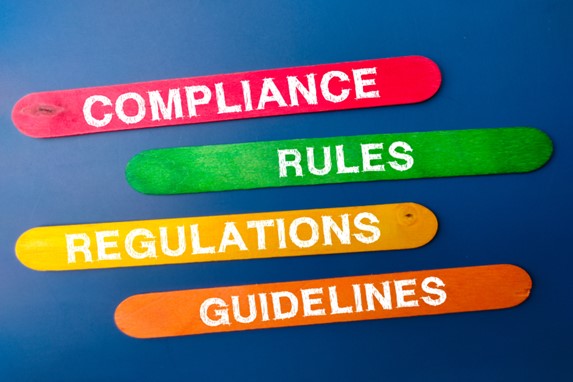Recruitment compliance, a cornerstone of any successful Human Resources (HR) department, involves adhering to laws and regulations during the hiring process. This integral function safeguards both the employer and potential employees, ensuring fairness, privacy, and equal opportunity.
Understanding the Significance of Recruitment Compliance
Recognising the importance of recruitment compliance is fundamental in maintaining a company’s reputation and avoiding legal pitfalls. It promotes a culture of fairness, mitigating discrimination in the workplace, and fostering a diversified and inclusive environment.
The Legal Framework for Recruitment Compliance
Various laws and regulations, both local and international, govern recruitment practices. Familiarity with these is paramount for HR professionals to avoid costly legal disputes and damage to the organisation’s reputation.
Key Aspects of Recruitment Compliance
Fair Hiring Practices
Non-Discrimination
Abiding by non-discriminatory practices ensures all candidates are assessed based on their merits rather than personal characteristics. Upholding this principle is not only morally just but also a legal obligation.
Equal Opportunity
Equal opportunity mandates that everyone has the same chance to apply for, and secure, jobs. By committing to this, employers promote a diverse and healthy work environment.
Data Privacy
Ensuring the confidentiality and security of candidate information is a critical part of recruitment compliance. Data protection regulations, such as the GDPR, provide stringent guidelines for this.
Right to Work Checks
Verifying a candidate’s right to work in a specific country is a statutory requirement. Non-compliance can lead to significant legal consequences for the employer.
Best Practices for Maintaining Recruitment Compliance
Implementing Robust HR Policies
Clear and robust HR policies can guide recruiters and hiring managers, setting out expectations for ethical and legal hiring practices.
Regular Training and Education
Frequent training and education sessions help HR professionals stay updated on the latest regulations, thus promoting continuous compliance.
Effective Documentation
Good record-keeping is essential in demonstrating compliance should any legal challenges arise. This includes maintaining records of job postings, applications, interview notes, and more.
Potential Challenges in Recruitment Compliance
Overcoming the Compliance Barriers
Challenges such as unconscious bias, legal changes, and technology misuse can create compliance barriers. However, these can be overcome by constant vigilance, training, and effective use of technology.
The Future of Recruitment Compliance
The Role of Technology
With the rise of HR technology, organisations can streamline and automate compliance-related tasks, making the recruitment process more efficient and transparent.
Summary
Recruitment compliance is pivotal for any HR department. It promotes fair hiring, maintains the organisation’s reputation, and minimises legal risks. By embracing best practices, addressing challenges, and leveraging technology, organisations can successfully navigate recruitment compliance.
Frequently Asked Questions
Why is recruitment compliance important?
Recruitment compliance is crucial for several reasons, especially in the UK, where numerous laws and regulations govern the recruitment process. Here’s why it’s important:
- Equal Opportunity and Anti-Discrimination: By ensuring compliance, organisations are ensuring that their recruitment process is fair and free from discrimination based on age, sex, race, religion, disability, or any other protected characteristic as defined by the Equality Act 2010. This helps to create a diverse and inclusive work environment.
- Data Protection: With the General Data Protection Regulation (GDPR) and Data Protection Act 2018 in place, personal data collected during the recruitment process must be handled and stored appropriately. Non-compliance can lead to hefty fines and damage the company’s reputation.
- Right to Work: Under the Immigration, Asylum and Nationality Act 2006, employers are required to check the eligibility of applicants to work in the UK to prevent illegal working.
- Avoidance of Unfair Dismissal Claims: If an employer does not comply with employment laws during the recruitment process, an unsuccessful candidate may potentially bring a claim for unfair dismissal or discrimination.
- Health and Safety Obligations: Compliance in recruitment also extends to health and safety obligations. For certain roles, specific health and safety checks must be made, for instance, ensuring a potential employee is medically fit for a role.
- Reputation: Failure to comply with recruitment laws and regulations can lead to negative publicity, which can damage a company’s brand and make it harder to attract quality candidates in the future.
- Consistency: A compliant recruitment process ensures a consistent approach to hiring, making it easier to track, manage, and improve recruitment practices over time.
In conclusion, recruitment compliance is integral not only to obey the law and avoid penalties but also to foster a fair, inclusive, and positive work environment. By ensuring compliance, companies can protect themselves, their existing employees, and their potential hires, ultimately contributing to a better, more effective recruitment process.
What laws and regulations govern recruitment compliance?
In the UK, there are several laws and regulations that govern recruitment compliance. Here is a list of some of the key ones:
- Equality Act 2010: This act is central to recruitment compliance as it protects job applicants and employees from discrimination based on protected characteristics such as age, disability, gender reassignment, marriage and civil partnership, pregnancy and maternity, race, religion or belief, sex, and sexual orientation.
- General Data Protection Regulation (GDPR): Introduced in 2018, GDPR dictates how personal data of EU citizens should be handled. For recruitment, this includes how CVs, application forms, and other personal data are collected, stored, and processed.
- Data Protection Act 2018: This act complements the GDPR within the UK, setting out specific regulations regarding the processing of data. It is essential for employers to understand how this act affects the recruitment process, especially regarding candidates’ personal data.
- Immigration, Asylum and Nationality Act 2006: Employers must check that job applicants have the right to work in the UK before employing them. This act contains regulations regarding the prevention of illegal working.
- Employment Rights Act 1996: This act includes provisions relating to employment contracts, which are relevant during the recruitment process, especially when it comes to offering a position to a successful candidate.
- Rehabilitation of Offenders Act 1974: This act allows some criminal convictions to be considered ‘spent’ after a rehabilitation period. It is crucial in the recruitment process, particularly when asking about a candidate’s criminal record.
- Agency Workers Regulations 2010: If you are employing individuals through an agency, these regulations give agency workers the right to the same basic employment conditions, such as pay and holidays, as direct recruits after they have worked for a qualifying period.
- Trade Union and Labour Relations (Consolidation) Act 1992: This affects recruitment when trade unions are involved, ensuring that individuals are not denied employment due to being a member of a trade union.
- Working Time Regulations 1998: Though mainly affecting employment, it’s important for recruiters to be aware of these regulations regarding working hours, rest breaks and holiday entitlement as they can be relevant to contracts.
- Safeguarding Vulnerable Groups Act 2006: For roles involving working with children or vulnerable adults, this act requires that individuals undergo necessary background checks.
- Health and Safety at Work etc. Act 1974: This legislation necessitates that employers ensure the health, safety and welfare of their employees, which can include specific considerations during the recruitment phase for certain roles.
Understanding and complying with these laws and regulations is essential for any organisation engaging in recruitment within the UK. Compliance ensures a fair and legal process and protects both the organisation and the candidates involved.
What are some best practices for maintaining recruitment compliance?
Maintaining recruitment compliance is key to ensure a fair, legal, and effective hiring process. Here are some best practices that can help:
- Know the Law: Stay up to date with current legislation and regulations that apply to the recruitment process. This includes understanding the Equality Act 2010, the GDPR and Data Protection Act 2018, as well as any other laws applicable to your industry or the specific roles you’re hiring for.
- Standardise Your Processes: Develop and implement standard procedures for all stages of recruitment, from writing job descriptions to conducting interviews, making job offers, and checking right to work documents. This helps ensure consistency and fairness.
- Job Descriptions and Advertisements: Make sure job descriptions and advertisements do not favour any particular group or individual. They should focus on the skills, qualifications, and experiences necessary for the job. Avoid using language that could be considered discriminatory.
- Data Handling: Ensure that all personal data collected during the recruitment process is handled and stored appropriately, in line with data protection laws. This includes obtaining necessary permissions before sharing a candidate’s information.
- Right to Work Checks: Conduct right to work checks for every new hire to comply with immigration laws. Keep records of these checks as proof of your due diligence.
- Record Keeping: Keep accurate records of the recruitment process, including job postings, applications, interview notes, and reasons for selection or rejection. This can help demonstrate your compliance if ever required.
- Diversity and Inclusion Training: Provide training to hiring managers and anyone involved in the recruitment process to ensure they understand diversity and inclusion principles and avoid unconscious bias.
- Regular Audits: Conduct regular audits of your recruitment process to identify and rectify any potential compliance issues. This could involve reviewing a sample of recruitment records, or more in-depth audits for specific areas of compliance.
- Background Checks: Depending on the nature of the job, you may need to conduct background checks. Make sure you comply with the law in obtaining and using this information, particularly under the Rehabilitation of Offenders Act 1974 and the Disclosure and Barring Service (DBS) check process.
- Working with Recruitment Agencies: When working with a recruitment agency, ensure that the agency is reputable and understands your obligations regarding recruitment compliance. They should be aware of and follow all relevant laws and regulations, including those regarding data protection and anti-discrimination. Make sure the terms of your agreement with the agency are clear about responsibilities for compliance.
Remember, while maintaining recruitment compliance can be complex, it’s crucial for avoiding legal pitfalls, fostering a diverse and inclusive workplace, and preserving your organisation’s reputation.
Benefits of Partnering with a Specialist HR Recruitment Agency
Access to a Vast Network of Professionals
A specialist HR recruitment agency has an extensive network of professionals in the human resources field. This network allows them to identify top talent with the right expertise, qualifications, and experience for high-level positions within your organisation.
Industry-Specific Knowledge and Expertise
HR recruitment agencies specialising in your industry have a deep understanding of the specific requirements and challenges of top-level HR roles. This expertise enables them to identify candidates with the ideal skill set and experience to excel in these positions.
Streamlined Recruitment Process
Working with a specialist HR recruitment agency can save your organisation time and resources by streamlining the entire recruitment process. The agency takes care of tasks such as job posting, candidate sourcing, screening, and initial interviews, allowing your HR team to focus on other essential duties.
Tailored Recruitment Strategies
A specialist HR recruitment agency develops customised recruitment strategies that align with your organisation’s needs and goals. They take into account factors such as your company culture, values, and objectives to ensure that the candidates they present are an ideal fit for your organisation.
Confidentiality and Discretion
Top-level HR roles often require a high degree of confidentiality and discretion during the recruitment process. A specialist HR recruitment agency is experienced in handling such sensitive information and can ensure that the process is conducted with the utmost professionalism and confidentiality.
Reduced Time-to-Hire
Partnering with a specialist HR recruitment consultant or agency can significantly reduce the time it takes to fill top-level HR positions. By leveraging their network, industry expertise, and recruitment strategies, they can quickly identify, screen, and present the best candidates for your organisation.
Enhanced Quality of Hire
A specialist HR recruiter’s primary goal is to identify the highest quality candidates for your organisation. Their expertise and tailored approach ensure that the candidates they present meet the specific requirements of top-level HR roles, leading to a better overall quality of hire.
Long-Term Partnership and Support
Establishing a long-term partnership with a specialist HR recruitment agency can be beneficial for your organisation’s ongoing talent acquisition needs. The agency can provide valuable insights, support, and assistance for future recruitment efforts, ensuring a consistent and effective approach to attracting and retaining top HR talent.
Why Choose PEEQ?
The average fill rate amongst HR Recruitment Agencies is 46%, but at PEEQ our average fill rate sits above 90%, So you are twice as likely to make a hire if you choose PEEQ.
This is due to two reasons:
Firstly, we only partner with our clients on an exclusive basis, so we ‘own the responsibility’
Secondly, we don’t employ recruiters. Instead, we work with trusted and proven freelance HR recruiters, to hire for our clients.
We give them the tools and infrastructure to be successful, and the rest is down to their magic and experience. Our Associates are not employed by us and only get paid for making a successful hire.
This makes them incredibly tenacious and committed to finding the best talent, which is why our fill rate sits above 90%, compared to the industry average of 46%.
More reasons to work with PEEQ
Psychometric insight reports
Obtain a unique insight into your candidates’ Cultural Fit, Strengths, Decision Making and Resilience through our accredited assessments.
Post-hire executive coaching
Set your hire up for success with a tailored coaching programme that helps them achieve their full potential personally and professionally.
Up to 6 Month Placement Guarantees
Confidently make your hire under our 2, 3 or 6 Month Placement Guarantee; safe in the knowledge that we’ll offer you a free replacement if they leave within our pre-agreed time period.
BeTalent Accredited Approach
We are proud to offer the BeTalent Accredited approach that enables us to deliver scientific candidate assessment, in accordance with the British Psychological Society standards.
This solution is for you if you want:
- An objective way to determine who is the best fit for your role
- A comprehensive understanding into your new hire before they start
- Peace of mind that you’ve made the right hiring decision.
Get in Touch with PEEQ HR Recruitment Agency
We are here to help you. If you have any questions, queries or would like to discuss a potential hire, a job application, or require clarification on anything detailed on our website, then we would love to hear from you.
Please feel free to call, email or complete the form provided and we will assist you.





